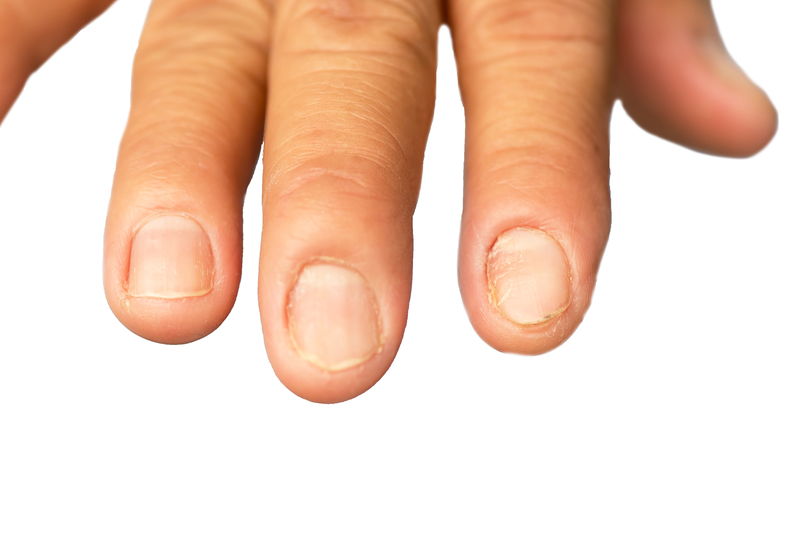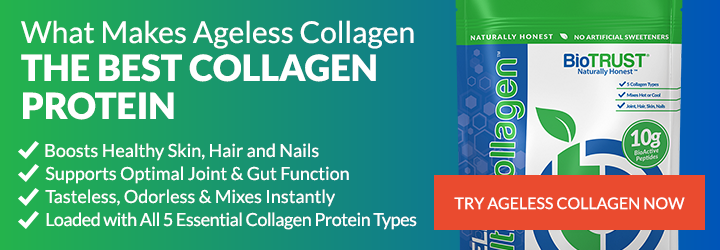Protein Deficiency: 9 Signs You’re Not Eating Enough Protein

If you’re reading this, there’s a good chance you’re not suffering from a protein deficiency. There’s also a really good chance you’re interested in far more than merely “surviving” and “getting by” in life. To that end, it’s pretty clear that an optimal protein intake for most people is substantially higher than the minimum requirements set by national and international health organizations. In other words, “enough” protein to avoid deficiency may not actually be “enough” if your goal is to optimize the way you look, feel, and live. Here are 9 of the top signs you’re not getting enough protein.
9 Signs of a Protein Deficiency
1. Your Metabolism Is Sluggish
If you feel like your metabolism is slower than molasses in January, one possible explanation is you’re simply not consuming enough protein. You see, higher-protein diets can help boost metabolic rate. All foods we eat require calories to be burned to digest, absorb, and assimilate their nutrients. This is the thermic effect of feeding (TEF)—or what we like to call the thermogenic burn.
Protein-rich foods have the greatest thermogenic burn of all, boosting the metabolism THREE to SIX TIMES more than carbs or fats.1 This means you burn more calories each day when you consume a higher-protein diet. It also means protein-rich foods provide less metabolizable energy (than carbs or fats)—meaning your body is less likely to store calories from protein as fat.2
2. You’re Hungry
One of the greatest “metabolic advantages” of consuming plenty of protein is that higher-protein diets increase satiety and improve appetite management. In other words, they can help control caloric intake, reduce cravings, and improve diet quality. Similar to its thermogenic burn effect, high-protein meals/foods are much more likely to make you feel full and satisfied compared to carbs or fats.1
There are a couple of interesting explanations. On one hand, there’s the protein leverage hypothesis. This essentially says our appetites are wired to “seek” protein, and we’re programmed to eat toward a protein target.3 On the other hand, protein-rich foods have been shown to beneficially impact hunger hormones—stimulating the release of appetite-suppressing hormones (CCK, GIP, GLP-1, PYY) and reducing levels of the hunger hormone ghrelin.4
3. You’re Losing Muscle, Not Fat
When we talk about “quality weight loss,” we’re referring to shedding unwanted body fat (especially around the midsection) while maintaining (or, better yet, building) calorie-burning lean muscle. That means the exact opposite of what we want to accomplish is losing calorie-burning lean muscle.
This is a big no-no. For starters, it can lead to a reduced metabolic rate and increased likelihood of regaining weight. It can lead to an increased appetite. And losing precious muscle can also set you up for a number of potential negative health consequences.
Besides lifting weights, which is the most effective way to protect and build muscle, avoiding a protein deficiency is essential. After all, research consistently shows higher-protein diets help preserve calorie-burning muscle when dieting.5
4. You’re Not Losing Fat Fast Enough
To piggyback on the last point, in general, pretty much any reduced-calorie diet leads to weight loss. But consuming enough protein while dieting can optimize your results. More specifically, research shows, consistently and quite convincingly, that higher-protein diets help people lose more fat—while maintaining that valuable, hard-earned muscle.6
5. You’re Struggling to Maintain Your Weight
Have you ever lost weight only to see the number on the scale creep right back up over time—maybe even higher than before? Unfortunately, this tends to be the norm rather than the exception. While there are likely many factors at play, one of the reasons for weight regain may be as simple as not getting enough protein. That’s right, research also suggests higher-protein diets may be an effective tool for weight maintenance and preventing weight regain.7
6. You’re Feeling Sore, Weak, or Not Making Progress in Your Workouts
If you’re struggling to make progress in your workouts or you’re feeling weak and maybe even losing strength, there’s a good chance you may not be recovering properly between exercise sessions. And while there are multiple factors that could be contributing, one thing we can’t rule out is that you’re not consuming enough high-quality protein, which helps promote muscle repair and recovery after exercise.
Consuming an optimal amount of high-quality protein—particularly when it’s combined with regular exercise (i.e., strength training)—can help build lean muscle, enhance recovery, improve strength, and support muscle function.8 A protein deficiency may be one reason you’re feeling excessively and/or consistently sore after workouts. There may be other factors at play; however, it’s worth noting you don’t need to chase soreness to see progress. In fact, that can be counterproductive.
7. You’re Feeling Lethargic
Do you struggle with up-and-down energy levels throughout the day, especially after eating? Do you experience mood swings? Who doesn’t, right? Well, as normal as it may seem, at least some of the energy-lethargy rollercoaster and mood swings may be tied to not consuming enough protein.
You see, these variances in energy levels and mood may be partly related to large fluctuations in blood sugar levels—otherwise known as glycemic variability. When you add protein to a meal, it improves glycemic control and lowers glycemic variability. In general, higher protein diets tend to improve markers of carbohydrate management.9,10
8. You’re Not Happy with Your Skin, Hair, or Nails
Is your skin losing its youthful luster? Have you begun to notice more fine lines and wrinkles? Are you finding your fingernails aren’t growing as quickly, or maybe they’re breaking or cracking more easily? Have you noticed your hair is thinning?
While we tend to chalk up changes like these to age, they may be traced back to not getting enough of a specific type of protein in your diet called collagen. Collagen is the most abundant protein in the body, and it is literally the glue that supports, connects, and holds us together. It is found throughout the body, and it helps give structure to our skin, hair, and nails among other tissues and organs.
Unfortunately, collagen levels sharply and consistently decline with age, explaining many of the reasons we “look” old as we get older. The good news is that you can support healthy levels of collagen as well as firm, healthy, young-looking skin, strong, healthy nails, and glossy hair by consuming more collagen protein as part of a healthy, balanced diet. Since most of us have abandoned the traditional “nose to tail” way of eating, the simplest, most efficient way to get more collagen in the diet is through a collagen peptide supplement.
9. You’re Having Trouble with Your Joints and Bones
Speaking of collagen, it’s a key constituent of cartilage, which provides the buffer between your bones/joints, making up 70% of its dry weight. Along those lines, collagen peptides support healthy, limber joints by helping reduce joint stiffness and discomfort while improving mobility.11 Collagen is also a key component of bones, and collagen peptides help support strong, healthy bones by stimulating bone cell production and helping increase bone mineral density.12 And in general, higher-protein diets support bone health by increasing calcium absorption.9
Protein Deficiency Signs: A Recap
So, there you have it. And while you may not be suffering from a protein deficiency per se, you need to pay attention to these 9 warning signs you’re not consuming enough protein. Well, now you may be wondering how much is enough? Or, what are the best sources of protein? These are super questions, and you can find those answers here.







